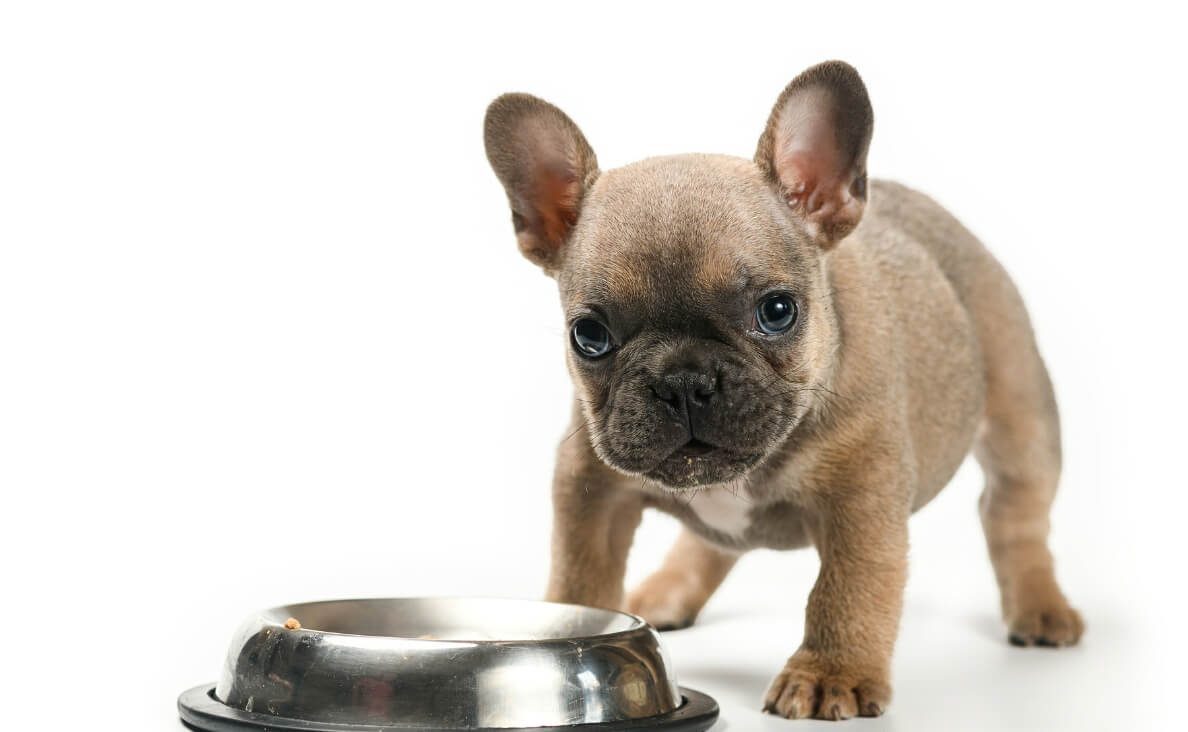
Welcoming a new puppy into your home is a joyous experience filled with excitement and new challenges. One such challenge that might concern many pet owners is when their puppy stops eating. It’s crucial to understand why your puppy may lose its appetite and how to address this issue. This comprehensive guide will explore various reasons, both medical and behavioral, and provide practical advice on what to do if your puppy isn’t eating.
Reasons Why Puppies Stop Eating
Puppies are known for their playful and often voracious eating habits. However, there are times when a puppy might suddenly lose interest in food. Several factors can contribute to this change in behavior:
- Environmental Stress: A new home, unfamiliar surroundings, or changes in the household can lead to stress in puppies, impacting their appetite.
- Dietary Changes: Puppies can be sensitive to changes in their diet. Switching food brands or types abruptly can make them hesitant to eat.
- Teething Pain: Just like human babies, puppies experience discomfort while teething, which can affect their eating habits.

Related: How to Train Your Puppy to Stop Biting
- High temperatures: High temperatures can have a notable impact on a puppy’s appetite, often leading to a decrease in their regular food consumption.
- Picky eaters: When it comes to puppies, a sudden disinterest in food can sometimes be attributed to their nature as finicky eaters. This behavior is not uncommon and can be influenced by various factors. Young puppies, in their exploratory phase, might develop selective eating habits, showing preference for certain types of food over others.
- Digestive upset or obstruction: Digestive upset or obstruction is a significant health concern that can cause puppies to stop eating. Gastrointestinal issues, ranging from mild indigestion to more severe blockages, can lead to discomfort and pain, resulting in a loss of appetite. Puppies are naturally curious and may ingest inappropriate items like toys, small objects, or harmful foods, leading to obstructions in their digestive tract. Such obstructions can cause acute discomfort and even be life-threatening, necessitating immediate veterinary attention. Symptoms of digestive upset, such as diarrhea, vomiting, or constipation, also contribute to a puppy’s reluctance to eat. These symptoms might be caused by factors like dietary indiscretions (eating something they shouldn’t have), infections, or even changes in diet. In these situations, a puppy’s digestive system is upset, and eating can exacerbate the discomfort or pain.
Related: Should You Feed Your Puppy Adult Dog Food?
- Stress and anxiety: Stress and anxiety are significant factors that can lead to a puppy stopping its regular eating habits. Puppies, much like humans, can be sensitive to changes in their environment, which can manifest in their behavior, including their eating patterns. Stressful situations such as moving to a new home, the addition or loss of a family member, or even changes in the daily routine can cause anxiety in puppies, leading them to lose their appetite.
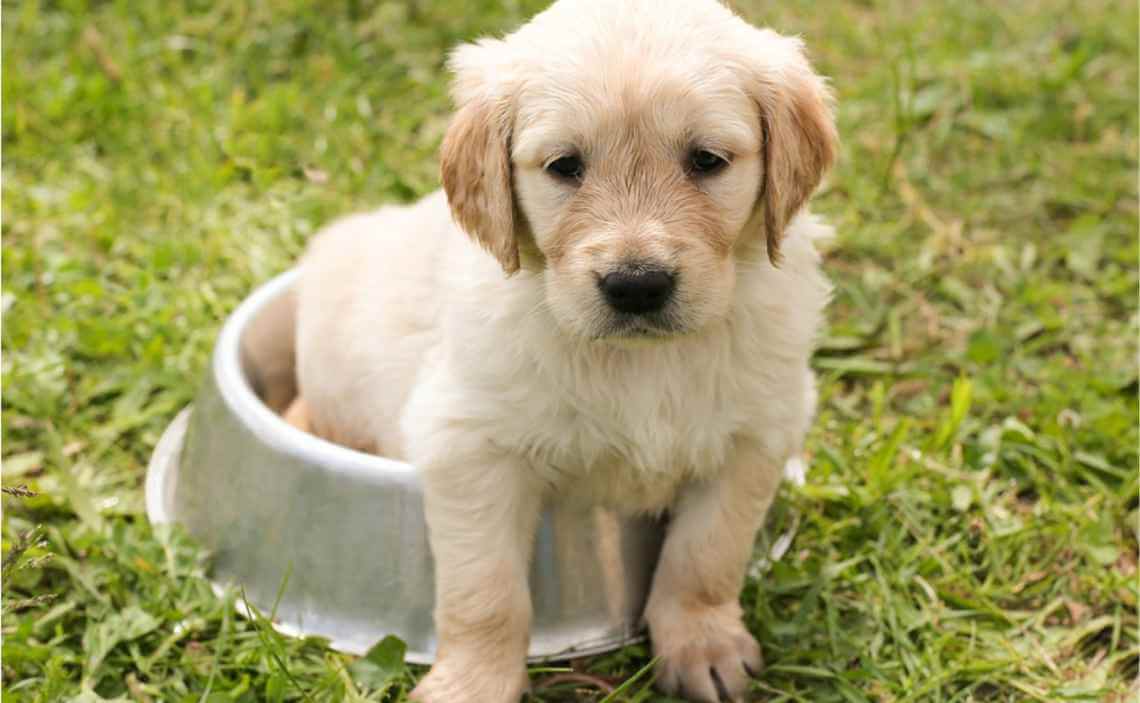
Medical Reasons Your Puppy Might Not Want to Eat
Sometimes, the cause of a puppy not eating can be medical. It’s important to be aware of these potential health concerns:
- Parasitic Infections: Common in puppies, parasites like worms can cause gastrointestinal discomfort and result in a lack of appetite.
- Viral Infections: Illnesses such as parvovirus or distemper can lead to serious health issues, including a significant decrease in appetite.
- Gastrointestinal Disorders: Conditions like gastritis, obstructions, or other digestive issues can make eating painful or uncomfortable for your puppy.
- Organ disease or dysfunction: Organ disease or dysfunction can be a serious underlying cause for a puppy to stop eating. Various organ-related health issues, such as liver or kidney diseases, can significantly affect a puppy’s appetite.
- Respiratory infections: Respiratory infections can be a significant factor in why puppies might stop eating. When a puppy suffers from a respiratory infection, it often experiences symptoms like nasal congestion, coughing, or difficulty breathing.
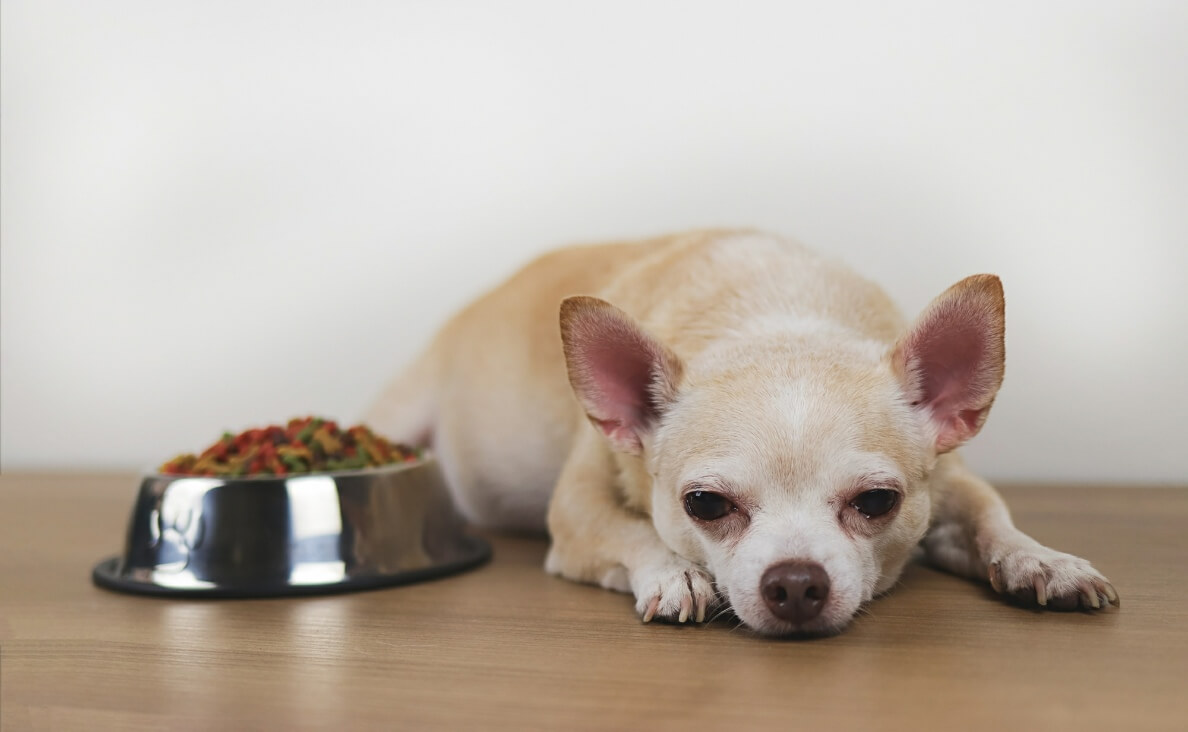
Behavioral Reasons Your Puppy Might Not Want to Eat
Behavioral issues can also play a significant role in a puppy’s eating habits.
Understanding these can help in addressing the problem effectively:
- Separation Anxiety: Puppies can become anxious when separated from their owners or littermates, which can reflect in their eating behavior.
- Overfeeding or Irregular Feeding Schedules: Puppies might not eat if they are being overfed or if their feeding schedule is inconsistent.
- Lack of Exercise: A lack of physical activity can lead to decreased appetite as puppies might not feel the need to replenish energy.
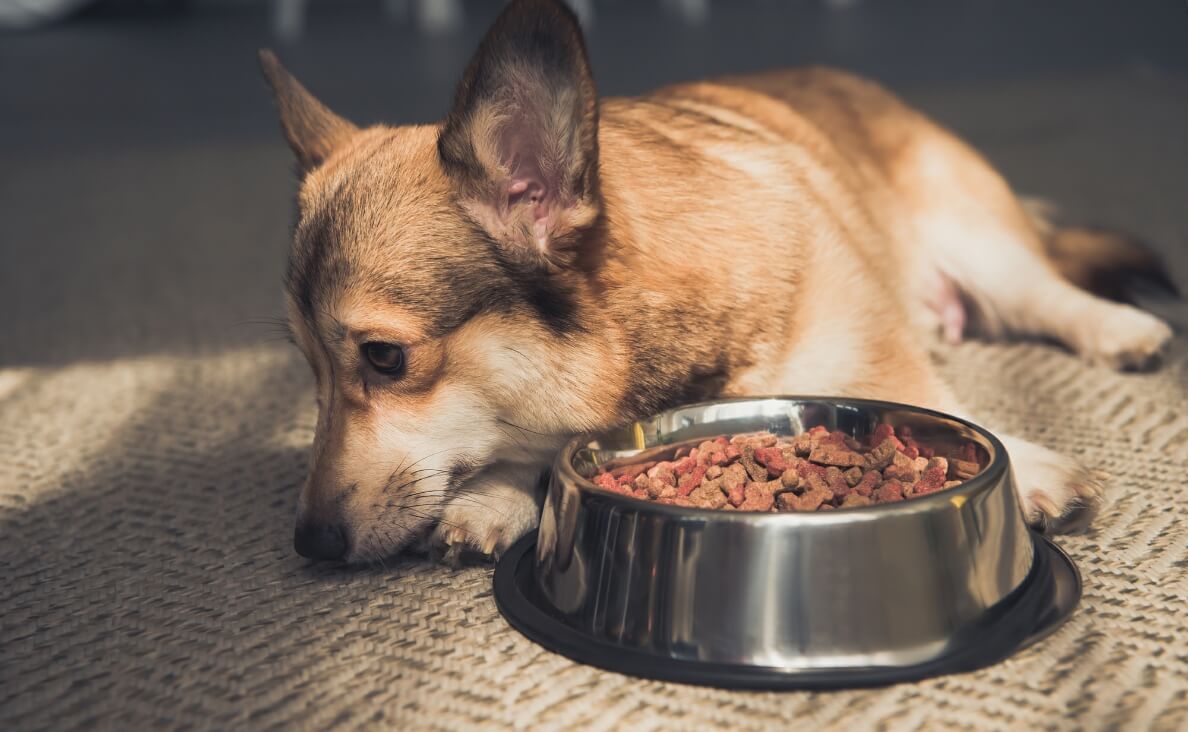
What to Do to Get Your Dog to Eat
If you’re facing the challenge of a puppy eating less or refusing food, there are several steps you can take to encourage them:
- Create a Stress-Free Environment: Ensure that the feeding area is calm and free from loud noises or disturbances.
- Establish a Routine: Consistency in feeding times and portion sizes can help regulate your puppy’s appetite.
- Introduce Foods Gradually: When changing diets, do so gradually by mixing the new food with the old one to avoid upsetting your puppy’s stomach.
- Encourage Exercise: Regular play and exercise can stimulate a puppy’s appetite.
- Change Their Diet: Consider altering your dog’s diet. Often, a simple switch in the texture or hardness of their food can make a significant difference. It’s advisable to maintain consistency in the protein type, even when introducing or blending in canned food. Additionally, remember to transition your puppy to new food slowly and gradually, to minimize the risk of digestive issues.
- Make Their Food More Enticing: Enhance the appeal of their meals. Adding a food topper, a moderate amount of fish oil supplement (be mindful of its fish protein content in case of allergy concerns), or some wet food can make a significant difference. Simply moistening dry food with warm water and letting it sit for a few minutes can also increase its attractiveness due to the enhanced smell. Ensure you do this before presenting the food to your puppy. It’s important, however, not to inadvertently train them to reject dry food in anticipation of more appealing additions. Puppies are quick learners, and the aim is not to foster selective eating habits but rather to ensure they consume enough calories.
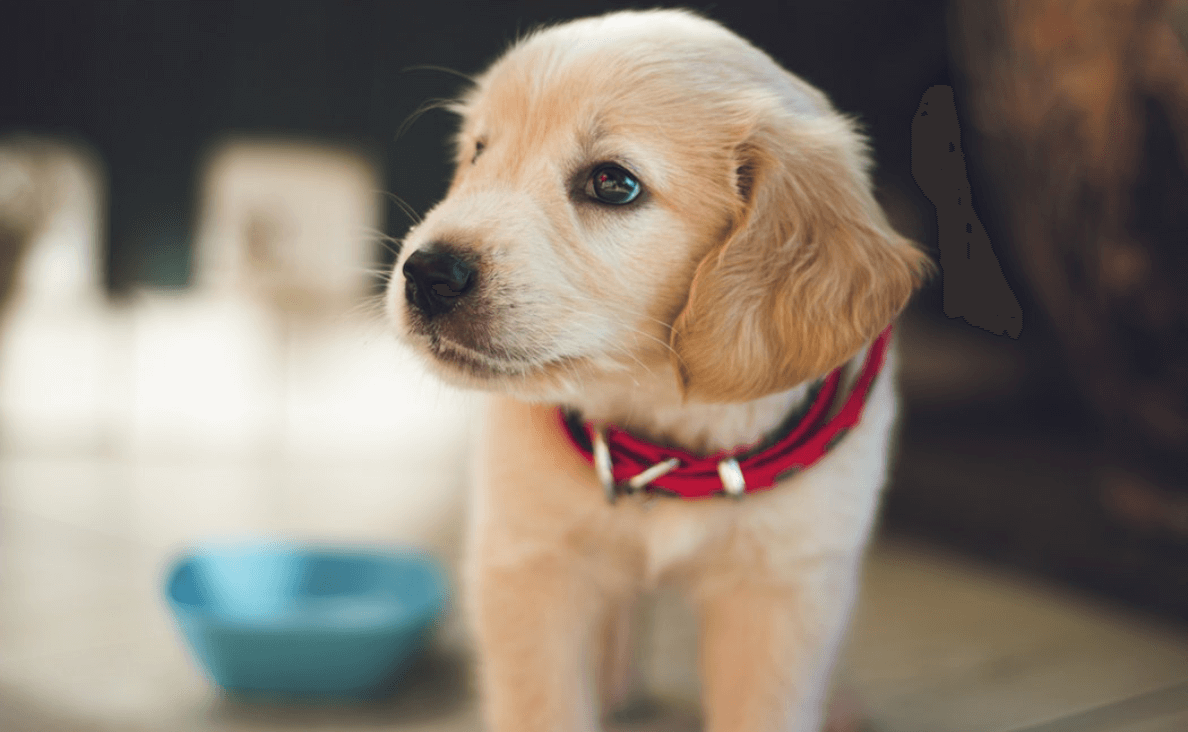
Signs Your Puppy Needs to See a Vet
While it’s normal for puppies to occasionally skip a meal, certain signs indicate the need for veterinary attention:
Contact your vet if your dog:
- Hasn’t eaten anything in the last 24 hours
- Hasn’t eaten anything in the last 12 hours and is sick or has diarrhea
- Isn’t eating and is also not drinking
- Is losing weight
- Seems unusually tired
- Seems unwell in other ways, i.e. coughing, constipated or straining to defecate
- Has signs of dental issues (pain in the mouth, bleeding or red gums, dribbles a lot, paws at their mouth/face)
In conclusion, a puppy not eating can be caused by a variety of factors, from environmental changes and dietary issues to more serious medical conditions. As a pet owner, understanding these reasons and knowing when to seek professional help is key to ensuring your puppy’s health and well-being. Remember, early intervention can make a significant difference in the health of your beloved pet.
Have you had success getting your puppy to start eating after refusing to eat? What worked for you? Please comment below…

 High Value Treats for Dogs: What They Are and How to Use Them
High Value Treats for Dogs: What They Are and How to Use Them Grain-Free Diets and Heart Disease in Dogs
Grain-Free Diets and Heart Disease in Dogs 5 Signs Your Dog Has Food Allergies
5 Signs Your Dog Has Food Allergies Should You Feed Your Puppy Adult Dog Food?
Should You Feed Your Puppy Adult Dog Food? Is Peppermint Safe for Dogs? Everything You Should Know
Is Peppermint Safe for Dogs? Everything You Should Know






Leave a Reply